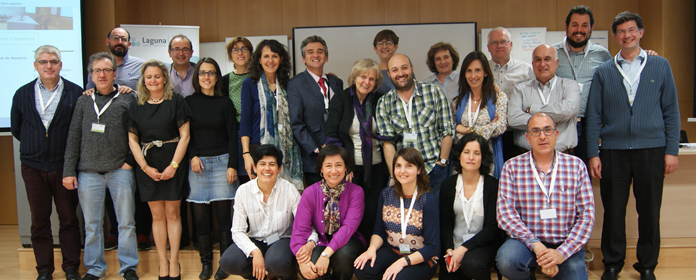More than 250,000 people in Spain need palliative care each year, but only 21 universities teach the subject
The University and the Vianorte-Laguna Foundation are organizing the sixth edition of the Teachers Training Course

Each year, more than 250,000 people need palliative care in Spain, of which 65% eventually die. 30% of these patients require specific care as they battle non-oncological diseases, while 70% suffer from oncological-related ailments.
With this data, 21 of 40 Spanish medical schools include a course on palliative medicine in their curricula, but only 8 schools require that students take it. That is why each year more than 3,000 physicians receive their license without receiving training in palliative care.
In order to promote its teaching at universities, the Institute for Culture and Society at the University of Navarra and the Vianorte-Laguna Foundation are jointly organizing the sixth edition of the Training Course for Teachers in Palliative Care, to be held at the Foundation’s training center.
The course, which has also been sponsored by Spain’s Grünenthal Foundation, received the Award for Humanization of Health Care from the College of Physicians of Madrid in 2013 and has been successfully given in 10 different countries. International experts have participated in this conference, such as Dr. Ruthmarijke Smeding, who is the course director and senior trainer at the University of Liverpool and the Institute for Clinical Teaching of Palliative Care in Rotterdam.
Other participants include Dr. Carlos Centeno, who is also a consultant within the Department of Palliative Medicine of the Clínica Universidad de Navarra, a professor at the School of Medicine, and director of the Development of Palliative Care in Europe working group within the European Academy for Palliative Care (EAPC), Dr. Jaime Boceta, a doctor of domiciliary hospitalization and palliative care at the Virgen Macarena University Hospital and associate professor within the University of Seville’s School of Medicine, and Dr. Antonio Noguera, who collaborates with the Department of Palliative Medicine at the Clinica Universidad de Navarra and is an associate professor within the School of Medicine.
Training the best so that they can teach others"Participants in this course have excellent career trajectories and seek to better understand patients’ existential issues. Therefore, rather than teach technical skills, this course intends to improve their communication and education skills," as Dr. Ruthmarijke Smeding noted.
For his part, Dr. Carlos Centeno claimed that, "the program has also tried to study the implications of learning processes in participants’ home institutions. How can we move from learning effectiveness to effectiveness in clinical practice? How can we maintain what participants have learned at the end of the course, so that beyond immediate reactions, behaviors change? How can we involve peers, hospitals, and health centers to improve care and assist patients? This has been one of the innovations added to the course."
